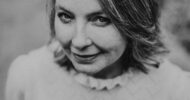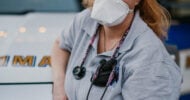I normally don’t make professional resolutions, but this year I am making an important exception. Why would I do such a thing? Like most of my evolution as a doctor, it comes from the wellspring of wisdom, namely listening to my patients.
I had a conversation recently with a patient, Kate, a retired school teacher, a lovely woman who spent her career in Berkeley County, WV, and taught kids who struggled. We spoke about weight loss medications and Kate’s belief that they were “a shortcut” and, frankly, a “slap in the face” to women like her who worked “for so long trying to lose weight.” Her indignance and conflicted emotions about the “Ozempic revolution” were palpable. Kate had strong opinions and described so much frustrated time in Weight Watchers and false starts along the way.
Our conversation took place in an exam room, and we returned time and again to ideas of intention and motivation. I was sympathetic to Kate’s conclusion that people grasp for help, especially if a quick fix or a cheat code is an option. It’s true, and, if we are being honest, I do this, and so do you. What I did not share with her that day was that it wasn’t so long ago that I had shared her feelings. But not anymore.
Over the Christmas holiday when I was away from work, I could not stop thinking about our conversation, and it has taken me a while to figure out why. Perhaps it is because, during the first six weeks of each year, my patients bring me their lofty New Year’s resolutions. It is hard—no, painful—to be the repository and cheerleader for these plans. In previous years, I often silently thought, “So—why, exactly, do you think you are going to get healthy NOW?” It was, in many ways, a natural response. And—I feel terrible—I thought it was one of wisdom and experience. But, as I have realized, I was horribly wrong.
I’ve been a doctor for over twenty years and, until recently, I thought I was “better” at these exchanges because I had improved my body language and gained patience. I may have looked better recently, and often thoughtfully nodded my head and whatnot. But, silently, behind my open posture, I judged my patients and their desires for a quick fix. If I am being totally honest, I had no faith or sense of possibility in these “resolutions.”
When I told Kate that it didn’t matter whether someone had tried for a lifetime to lose weight or was doing it for the first time, the Ozempic-type medications—almost—worked for everyone; she looked deflated. Seeing Kate’s complex emotions in this manner gave me a mirror in which I saw dispatches from my own emotional journey.
I have come to the conclusion that good opportunities are beautiful, no matter how we get to them. Advances in treatments can, and do, offer tantalizing glimpses of a future where I can be a better version of me, healthier, slimmer, happier, or in less pain. In 2024, I am stepping away from judgment and striving toward feelings of wonder and a sense of possibility. If a patient brings me what they believe is a positive development for their health, I resolve to step into their shoes and see the world of possibility it offers them. By doing so, I will access the creative part of my brain, which is the opposite of doubt. If I do this, I will become a co-conspirator in what may be the creation of something new.
And, if I can glimpse what the patient sees, maybe I will take it as my charge to help them get there, whether it is a quick fix or the long way around the barn. Either way, it already feels good to step away from skepticism and negativity and towards acts of creation. I’m uncertain about these feelings as they are shiny and new, but they feel much larger than a mere resolution.
Ryan McCarthy is an internal medicine physician.





















![Stopping medication requires as much skill as starting it [PODCAST]](https://kevinmd.com/wp-content/uploads/The-Podcast-by-KevinMD-WideScreen-3000-px-4-190x100.jpg)
![Weaponizing food allergies in entertainment endangers lives [PODCAST]](https://kevinmd.com/wp-content/uploads/The-Podcast-by-KevinMD-WideScreen-3000-px-3-190x100.jpg)


![AI censorship threatens the lifeline of caregiver support [PODCAST]](https://kevinmd.com/wp-content/uploads/Design-2-190x100.jpg)
